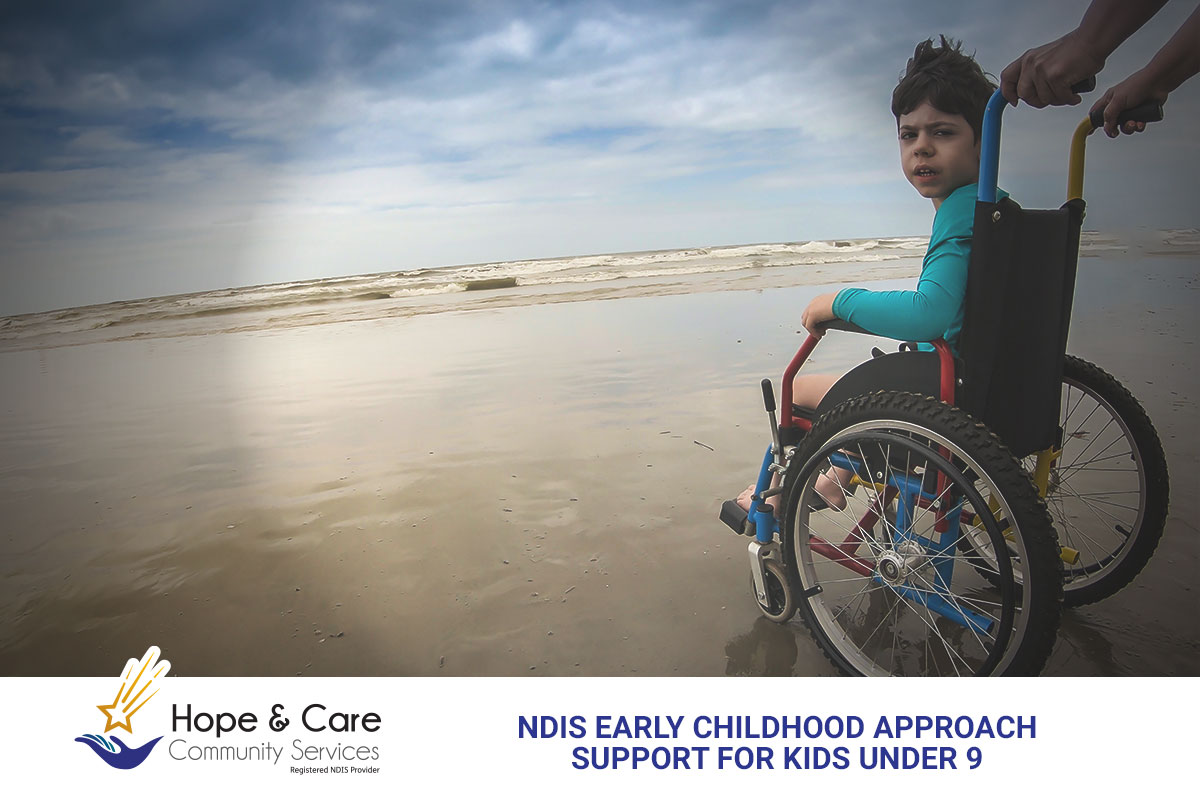
Early childhood is a critical stage in a child’s life, shaping their learning, behaviour and overall well-being. During these years, children develop essential skills that help them communicate, interact and navigate the world around them.
To ensure children with developmental delays or disabilities receive timely support, the National Disability Insurance Scheme (NDIS) introduced the Early Childhood Approach. This initiative provides children under nine with access to early intervention services, helping them build key skills and gain confidence as they grow.
What Is the NDIS Early Childhood Approach?
The NDIS Early Childhood Approach provides early intervention support for children under nine who experience developmental delays or disabilities. Instead of waiting for a formal diagnosis or significant challenges, this approach ensures that children receive assistance as early as possible, improving their long-term outcomes.
A major benefit of this approach is that children under six do not need a formal diagnosis to access support. If parents, caregivers, or educators notice delays in speech, motor skills, learning, or social interactions, they can seek help immediately. This eliminates unnecessary delays and ensures children get the NDIS early intervention services they need.
Why Early Intervention Matters
Research consistently shows that early intervention leads to better long-term outcomes for children with disabilities or developmental concerns. Early support can help children:
- Strengthen communication and language skills
- Improve social interactions and emotional regulation
- Gain independence in daily activities, such as dressing, eating and playing
- Enhance cognitive and problem-solving abilities, preparing them for school
- Reduce the long-term impact of developmental challenges
By addressing developmental concerns at the earliest stage, early intervention gives children the tools they need to lead more independent and fulfilling lives.
Key Features of the Early Childhood Approach
The NDIS Early Childhood Approach focuses on inclusive, flexible and family-centred support. Key features include:
- No Formal Diagnosis Required – Children under six can receive support without a diagnosis, ensuring early intervention is accessible.
- Support From Early Childhood Partners – Families work with NDIS early childhood partners, professionals who assess the child’s needs and recommend the right services.
- Research-Based Interventions – The program uses evidence-based therapies to ensure children receive the most effective support.
- Family-Centred Guidance – Parents and caregivers receive resources, training and practical strategies to help their child develop key skills at home.
- Access to Local NDIS Services – Families connect with community-based resources, including speech therapy, occupational therapy, physiotherapy and early education programs.
By partnering with NDIS early childhood specialists, families gain expert guidance on how to support their child’s development while accessing high-quality services.
How It Works
The NDIS Early Childhood Approach follows a structured process to ensure children receive appropriate support. Here’s what families can expect:
Contact an NDIS Early Childhood Partner
Parents or caregivers who have concerns about their child’s development can contact an NDIS early childhood partner. These professionals assess the child’s needs and explain the NDIS early intervention services available.
Assess the Child’s Developmental Needs
The early childhood partner works closely with the family to gather information about the child’s:
- Strengths and challenges
- Daily routines and interactions
- Developmental concerns, such as communication difficulties, motor skill delays, or
- sensory processing challenges
- Medical history and reports from healthcare professionals
This comprehensive assessment ensures that each child receives personalised support tailored to their unique needs.
Develop a Personalised Early Intervention Plan
After the assessment, the early childhood partner creates a customised early intervention plan. This may include:
- Speech therapy, occupational therapy, or physiotherapy
- Referrals to additional community services, such as social skills programs and educational support groups
- Guidance for families, providing simple strategies to encourage learning and development at home
Ongoing Review and Adjustments
As children grow, their support needs evolve. The NDIS Early Childhood Approach includes regular reviews, allowing families and professionals to adjust support plans as needed. This ensures children continue progressing and receive the most effective assistance.
Expansion of the Early Childhood Approach: Supporting Children Up to 9 Years Old
Previously, the NDIS Early Childhood Approach only supported children under seven. However, as of July 1, 2023, the NDIS expanded eligibility to include children under nine years old.
This change allows families to access early intervention services for an additional two years, providing more time to:
- Strengthen skills before transitioning to school-based or community-based support
- Continue therapy and interventions tailored to their specific needs
- Build confidence and independence before moving into NDIS standard plans
The NDIS is rolling out this change over two years, ensuring families and service providers can adapt smoothly.
Conclusion
The NDIS Early Childhood Approach plays a crucial role in ensuring that children with developmental delays or disabilities receive the support they need as early as possible. With the expanded eligibility to include children up to nine years old, even more families can access these essential services.
Early intervention helps children build essential skills, gain confidence and develop independence. By acting early, families can create a strong foundation for their child’s future.
For families looking for NDIS early intervention services or support for children under nine, reaching out to an NDIS early childhood partner is the first step toward accessing the right help.
Hope & Care Community Services (HCCS) is a registered NDIS provider committed to delivering high-quality disability support services. HCCS offers a wide range of supports, including therapy services, personal care and community participation, helping individuals live independently and achieve their goals. With a person-centred approach, HCCS ensures that every participant receives tailored support to meet their unique needs.
Want to learn more? Read other articles :
- Redefine Independence your own way – with HCCS
- Who’s Who: The Key Terms of Your NDIS Plan
- Foundational Supports: Building Blocks of NDIS Success
HCCS is a registered NDIS provider. Learn more about our services.
♥ We are available in Brisbane! – Our team is just a call away!
